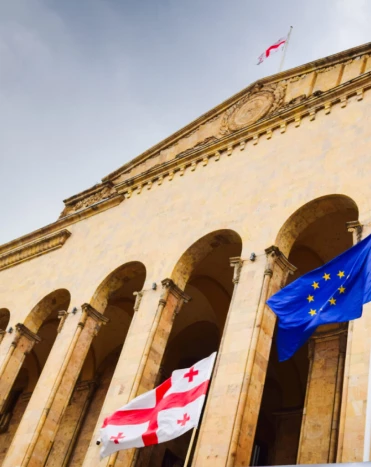
International Relations in Georgia play a crucial role in shaping the country’s foreign policy and global engagement. Situated at the crossroads of Europe and Asia, Georgia’s geographical location has positioned it as a significant player in regional dynamics. Throughout its history, Georgia has experienced diverse influences from neighboring powers, contributing to its unique international relations. From ancient trade routes to modern geopolitical considerations, Georgia’s position has shaped its interactions with the international community. Understanding the historical context and geographical significance is essential to comprehending the dynamics of Georgia’s international relations.
Multilateral Cooperation
International Relations in Georgia extend to its active participation in multilateral forums and organizations, demonstrating the country’s commitment to global cooperation. Georgia has pursued closer ties with the European Union (EU) and has made significant progress in its relationship through the Eastern Partnership program. The country aspires to join the EU, and it has implemented various reforms to align with EU standards and values. Additionally, Georgia is a member of NATO’s Partnership for Peace program and seeks to enhance its cooperation with the alliance. Participation in the Organization for Security and Cooperation in Europe (OSCE) further highlights Georgia’s commitment to regional security, conflict resolution, and human rights promotion.

Bilateral Relations
Bilateral relations play a vital role in the international relations of Georgia. The country has established diplomatic ties with a wide range of countries and regions, fostering diplomatic, economic, and cultural exchanges. Historical ties have shaped the relationships with countries such as the United States, European Union member states, Turkey, and neighboring countries like Armenia and Azerbaijan. These bilateral relations encompass various aspects, including trade, investment, security cooperation, and cultural exchanges.
Conclusion
The significance of international relations in Georgia is evident in its pursuit of a proactive and constructive role in the international arena. Georgia has established diplomatic ties with 185 countries and the Order of Malta. However, it has ended its diplomatic relations with Russia, Nicaragua, and Syria. On the other hand, Georgia has not established diplomatic relations with several countries including Venezuela, Nauru, Bhutan, Cook Islands, Niue, Sahrawi Arab Democratic Republic, and other states with limited recognition. Overall, the development of robust and mutually beneficial bilateral relations remains a key focus of Georgia’s international relations strategy.
Georgia values strong international relations for
global cooperation and mutual prosperity.
International Relations In Georgia FAQ
International relations in Georgia play a crucial role in shaping the country's foreign policy and global engagement.
They are developing robust and mutually beneficial bilateral relations.
Georgia joined the OSCE in 1992, shortly after gaining its independence from the Soviet Union.
CONTACT US FOR ANY QUESTIONS
Core responsibilities of Human Resource Management

Common Types of HR Services
3box. Culture and different internal policies all have a significant impact on employee retention and engagement. This extremely important for growing businesses and start-ups. For sustainable growth, a big-picture strategy managed by HR professionals or service providers will be key.
It is necessary to develop and maintain a systematized framework to discover opportunities and enhance work performance, while ultimately contributing to the betterment and value of the entity.
Stay ahead in a rapidly changing world
The solution WP consulting came up with combined cutting edge technology with real world practicality. Everyone knew that the systems had to be updated, the real challenge was updating them without disrupting the whole organization in a negative way. The solution was to introduce proper workload management done through computers, while providing mobile platforms to the stakeholders.
This allowed the workers to be involved in the job instead of feeling like they had been made redundant by technology.

The biggest challenge was that Arguzo was not utilizing technology properly. Too much of the work was still being recorded manually, which meant that the numbers took a long time to note down and then to be analyzed. Live data was also not available and decisions can only be made after all the required data and been received. This was holding Arguzo back; they knew they could corner more of the market if they had the ability to be more mobile. The work addressed three critical issues for Pharm Ltd.:
The biggest challenge was that Arguzo was not utilizing technology properly. Too much of the work was still being recorded manually, which meant that the numbers took a long time to note down and then to be analyzed. Live data was also not available and decisions can only be made after all the required data and been received. This was holding Arguzo back; they knew they could corner more of the market if they had the ability to be more mobile. The work addressed three critical issues for Pharm Ltd.:
The biggest challenge was that Arguzo was not utilizing technology properly. Too much of the work was still being recorded manually, which meant that the numbers took a long time to note down and then to be analyzed. Live data was also not available and decisions can only be made after all the required data and been received. This was holding Arguzo back; they knew they could corner more of the market if they had the ability to be more mobile. The work addressed three critical issues for Pharm Ltd.: